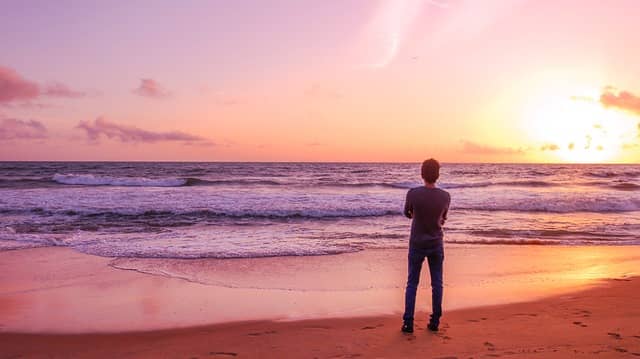Why does Simon go off by himself? William Golding’s novel “Lord of the Flies” has captured readers’ imaginations for decades. One of the most intriguing characters in the book is Simon, a quiet and reflective boy who seems to possess a deep understanding of the island’s mysterious nature. In Chapter 7 of the novel, Simon goes off by himself to alert Piggy and the littluns that they will return after dark. This begs the question: why does Simon go off by himself? Is he simply trying to be helpful, or is something more happening beneath the surface? This article will explore the reasons behind Simon’s actions and what they reveal about his character.
Why does Simon go off by himself? (Answer)
In Chapter 7 of William Golding’s novel Lord of the Flies, Simon warns Piggy and the littluns that they will return after dark. This seemingly small action is significant, as it provides insight into Simon’s character and his role within the group of boys stranded on the island.
One possible reason for Simon’s decision to go off by himself is his desire to be helpful. Throughout the novel, Simon is portrayed as a thoughtful and compassionate individual who genuinely cares about the welfare of his fellow castaways. By going to find Piggy and warn him about the impending darkness, Simon demonstrates his concern for the whole group’s safety. This selfless behavior is in stark contrast to the more aggressive and competitive actions of some of the other boys, such as Jack and his followers.
However, there may be more to Simon’s actions than just a desire to be helpful. Simon is also a deeply introspective character who spends much of his time contemplating the nature of the island and the boys’ situation. He is one of the few characters who seems to grasp the full extent of their danger, and he is acutely aware of the potential for violence and destruction within the group. By going off by himself, Simon may seek a moment of solitude to reflect on these issues and try to make sense of the chaotic world around him. In a way, his decision to go off alone is a form of self-care, a way to recharge his emotional batteries during a stressful and uncertain situation.
Another possible explanation for Simon’s actions is that he is simply more attuned to the natural rhythms of the island than the other boys. Throughout the novel, numerous references exist to the power of nature and its influence on the boys’ behavior. With his intuitive understanding of the island’s ecology and deep connection to the natural world, Simon may be more in tune with these rhythms than the other boys. His decision to go off alone is a way of aligning himself with these natural forces and tapping into their power.
Where does Simon go when he goes off by himself?
In the book Lord of the Flies, when Simon goes off by himself, he goes into the jungle to sit behind the great woven mat of creepers. He stays hidden in his cave of vines despite feeling very thirsty.
Does Simon prefer to be alone?
Simon is portrayed as a solitary and introverted character who enjoys spending time in nature alone. He often wanders off into the jungle by himself to meditate and reflect. However, it is also suggested that Simon craves social interaction but lacks the social skills and confidence to initiate or maintain it. In chapter 3 of the book, while exploring the wilderness, Simon comes across a quaint clearing with fruits growing and he describes feeling “lonely, dressed in his school colors,” which suggests he doesn’t necessarily prefer being alone all the time.
Conclusion
In conclusion, Simon’s decision to go off alone in Chapter 7 of Lord of the Flies is a complex and multi-faceted action revealing much about his character and role within the group. Whether driven by a desire to help, a need for solitude and reflection, or a deep connection to the island’s natural rhythms, Simon’s actions demonstrate the unique perspective he brings to the story and his important role in shaping its outcome.
